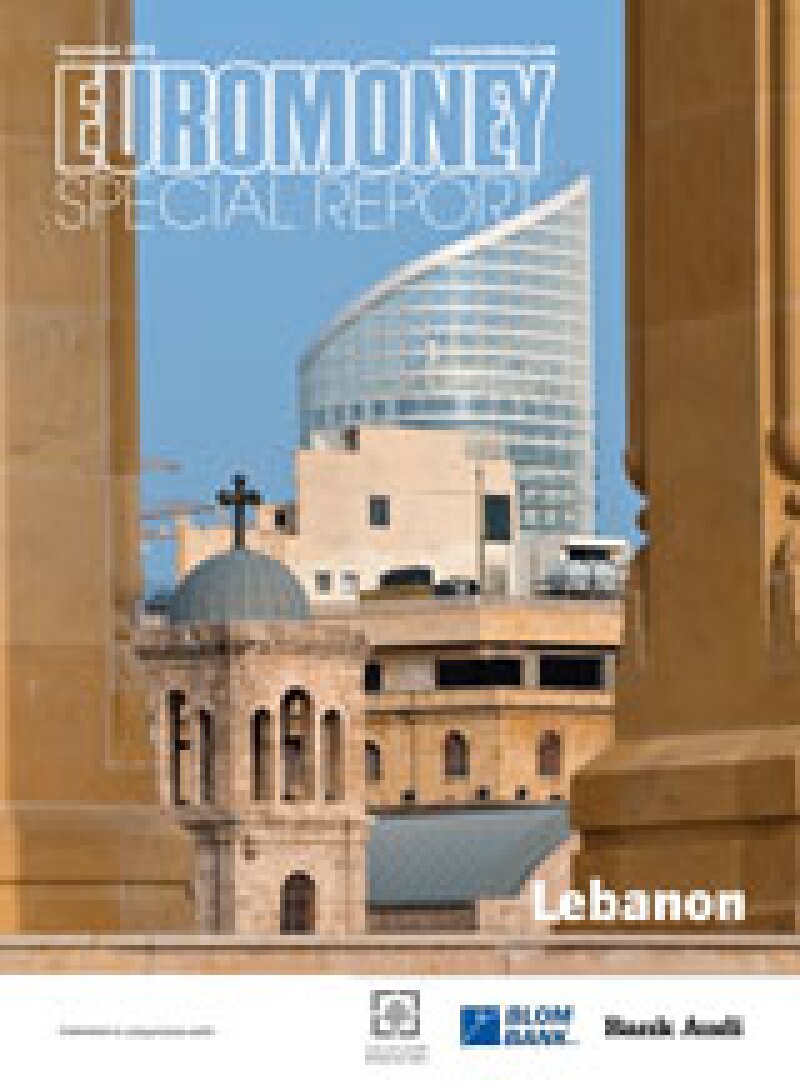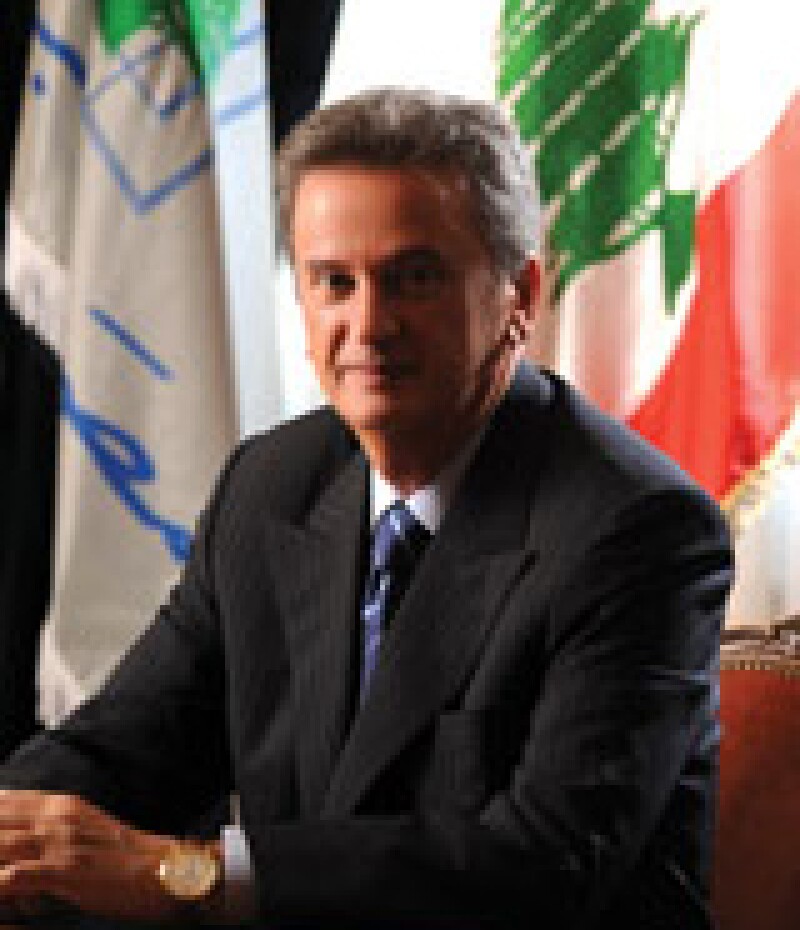
|
At first glance, the immediate prospects for Lebanon’s economy look less than stellar. Four years of civil war in neighbouring Syria have cast a long shadow, curbing growth and polarizing politics, as well as burdening its already creaking infrastructure with more than one million refugees.
GDP growth, which was running at an average of more than 7% a year before the start of the Syrian crisis, has since slumped to around 2% as trade and tourism links with the rich Gulf states have been cut. Most external analysts are forecasting expansion of that order again this year but Riad Salamé, Lebanon’s long-standing central bank governor, says this may be optimistic.
“Lebanon may have zero growth in 2015,” he says. “We have seen a reduction in demand on the consumer side as well as a decline in investments. The pace of growth of bank lending to the private sector has also slowed.”
He notes that growth in Lebanon is usually concentrated in the summer season, when the country is traditionally a popular destination for both tourists and Lebanese ex-pats.
Low growth is a particular concern for Lebanon given its very high public debt levels. General government debt stood at 134% of GDP at end-2014, a figure that has been exacerbated in recent years by persistent budget deficits that have regularly topped 8% of overall output. for both tourists and Lebanese ex-pats. A modest recovery in arrival numbers this year has not, however, translated into an increase in consumption. Meanwhile, a reduction in deliveries of cement and the issuance of building permits suggests that the construction sector – another major driver of the economy – is also slowing.
Monetary strength
Fortunately, as Salamé points out, Lebanon’s fiscal weakness is mitigated by strong monetary conditions. Thanks largely to substantial inflows from the Lebanese diaspora, bank deposits continue to increase at an annual rate of 6-7%. In turn, the banking sector supports the wider economy through its willingness to absorb the bulk of Lebanese government debt.
“Despite the negative environment, investor confidence has been maintained and Lebanon has been able to be self-sufficient in funding terms in the public and private sector,” says Salamé. “What is more, interest rates have remained stable and even declined this year, improving funding conditions.”
He notes that, in this respect, the recent global market turmoil prompted by concerns about economic slowdown in China may also work to Lebanon’s advantage. “The slump in emerging markets may lead to the postponement of interest rate rises worldwide. This would mean that Lebanon will not be forced to raise rates in order to attract inflows, which could be harmful for the economy.”
Meanwhile, tumbling oil prices – although negatively impacting some of Lebanon’s key trading partners in the Gulf – have helped to drive inflation down to close to zero and boosted the purchasing power of Lebanese households.
Significant increases in foreign exchange reserves in recent years have also enhanced stability by boosting confidence in the central bank’s ability to maintain the currency’s long-standing dollar peg. By the end of April, FX reserves stood at a record high of $33.8 billion, more than three times the level recorded in 2007.
This impressive increase has been partly due to dollar inflows from the diaspora – which equate to around 20% of Lebanon’s GDP – and partly to the central bank’s ability to issue financial instruments in hard currency, says Salamé. “The fact that we are able to issue instruments in longer maturities also contributes to stability, as it means we are not reliant on short-term funding,” he adds.
Economic drivers
Salamé is also sanguine about the outlook for future growth, singling out three industries as the likely main drivers of economic

|
Riad Salamé, |
recovery. The first is the financial sector, traditionally the bedrock of the economy and still a beacon of stability, thanks in large part to the careful stewardship of the central bank.
In his 23 years as governor, Salamé has taken a highly conservative approach to bank regulation, maintaining a strict separation between commercial and investment banking, imposing high capital and liquidity requirements, and restricting local lenders’ involvement in high-risk products such as derivatives and structured finance.
He recently took action again, this time to prevent the development of a bubble in Lebanon’s fast-growing consumer lending segment. In late 2014, a minimum downpayment of 25% was introduced for car loans and mortgages, while monthly repayments were capped at a percentage of household income. Provisioning requirements for overdue loans were also increased.
“These measures were not taken in response to any problems in the banking sector but in order to protect families in Lebanon and prevent asset quality deterioration in future,” says Salamé.
Further progress has also been made in the implementation of new international regulatory standards in Lebanon. The country’s banks have been tasked with achieving a minimum core tier one capital ratio of 12% by the end of this year, well above the level required by the Basel III framework.
“This approach is essential to contain the risks created by volatility in the Lebanese market and also to ensure the stability of Lebanon’s correspondent banking system and international financing,” says Salamé. “The banks have already made good progress towards this objective and I am confident they will be able to meet it by the deadline.”
New sectors
Salamé also cites two new sectors as key to Lebanon’s future growth: oil and gas production, and the knowledge economy. In theory, the former should prove more profitable. Lebanon’s territorial waters are estimated to hold reserves of 30 trillion cubic feet of natural gas and 600 million barrels of oil, which even with energy prices at current levels could provide a substantial windfall.
Exploiting these resources may prove problematic, however, given that it will require high-level political decisions. Lebanon has been without a president for more than a year, while the coalition government led by prime minister Tammam Salam has been paralyzed by internal divisions.
By contrast, the development of Lebanon’s knowledge economy is proceeding at a rapid pace, thanks largely to the support and encouragement of the central bank. In September 2013, Banque du Liban introduced an initiative called Circular 331, designed to encourage banks to provide equity funding to start-up companies in the technology sector.
“The purpose of Circular 331 was to kickstart the knowledge economy sector in Lebanon,” says Salamé. “We believe that the digital economy is going to play a major role worldwide and if Lebanon fails to develop the sector it will hurt our economy in future. We also believe that this sector has the potential to create significant employment opportunities, especially for young Lebanese. We know that Lebanon has the human resources necessary to succeed in this sector.”
Under the terms of the initiative, banks are given subsidized funding on condition that they invest up to 3% of their own capital in start-up companies. These investments also benefit from a 75% guarantee, in return for which the banks agree to pass 50% of any profits back to the central bank. Based on overall capital levels in the banking system, the total funding made available under the scheme amounts to around $400 million.
“The formula of Circular 331 has been very successful,” says Salamé. “Lebanon’s banks have already invested more than $250 million in the technology sector, which is more than we expected after only two years of the initiative being in place.”
Ecosystem development
In addition to encouraging bank funding, Circular 331 also includes provisions for developing the ecosystem of the technology sector in Lebanon through support for initiatives such as the UK Lebanon Tech Hub. With offices in Beirut and London, the Tech Hub’s remit includes an accelerator programme designed to help existing Lebanese companies in the sector to scale up and reach international markets.
Banque du Liban was also the prime mover behind Lebanon’s first international start-up conference, Accelerate 2014, which took place in Beirut last November. The event attracted more than 1,600 delegates from 25 countries. A second conference is planned for December this year.
The tech sector still faces challenges in Lebanon, most notably in relation to the provision of high-speed internet access. “We need to see more commitment from the public side that we don’t control in terms of developing the infrastructure that will ensure better connectivity in the country,” says Salamé.
He is confident, however, that such support will be forthcoming. “Everyone in Lebanon is getting interested in the knowledge economy,” he says. “This will create the momentum needed to push the government to provide the infrastructure that is needed to develop the sector.”
In conclusion, says Salamé, the message for investors is that Lebanon is open for business and moving forward. “Clearly there are risks associated with Lebanon, but these are well known and the returns here are commensurately higher,” he says.
“Lebanon also offers the advantage that international investors can fund themselves locally, thanks to the high liquidity in the banking sector. What is more, due to our lack of restrictions on movement of capital, this funding can be in any currency and the profits can be repatriated freely.”
